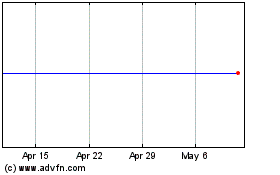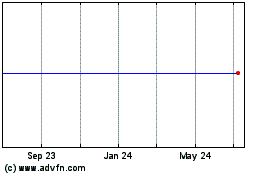Salesforce Plus Slack Doesn't Equal Microsoft -- Heard on the Street
December 01 2020 - 7:06PM
Dow Jones News
By Dan Gallagher
Salesforce.com has never been one for thinking small, but buying
Slack Technologies stretches the company's ambitions to a whole new
level.
Salesforce formally announced the $27.7 billion deal Tuesday
afternoon, confirming a report by the Wall Street Journal last week
that the two were talking. The mostly cash offer values Slack at
about $45.50 a share, which is a 54% premium to its unaffected
price and represents a multiple of about 26 times forward sales. As
such, Slack is Salesforce's most expensive deal by multiple
measures. Its previous two acquisitions -- $14.7 billion for
Tableau Software last year and $5.8 billion for MuleSoft the year
before -- valued those enterprises at 11 times and 15 times forward
sales, respectively, estimates Brent Thill of Jefferies.
So Salesforce investors are understandably uneasy; the stock has
dropped more than 7% since news of the deal first surfaced last
week. The shares slipped another 4% after hours following the
announcement Tuesday, likely because the transaction includes a
higher-than-expected cash component that will require Salesforce to
take on additional debt.
An acquisition of this scale is a bit of a surprise even
considering the highly acquisitive company's history --
particularly since Chief Executive Marc Benioff observed in late
August that "we're not in a good M&A environment." He wasn't
wrong. Cloud valuations had already been soaring, with the BVP
Nasdaq Emerging Cloud Index up 68% for the year by that point,
compared with a 28% gain for the broader Nasdaq Composite. The
cloud index is now up 88%, with several companies in the group now
fetching multiples of more than 30 times forward sales.
That might make Slack seem a bargain as its stock had been
underperforming its cloud peers prior to last week's news. But
there are reasons for that underperformance: The pandemic's great
work-from-home shift hasn't boosted Slack's business the way it has
for other cloud-based services such as Zoom Video and Shopify.
Slack also continues to be weighed down by the perception that it
is in a losing race with Microsoft, which has been heavily
promoting its Teams workplace-collaboration platform.
Buying Slack puts Salesforce squarely in that competitive
dynamic. It won't close the gap completely, though, as Teams also
offers features such as videoconferencing that a combined
Salesforce-Slack won't have. Microsoft also bundles Teams with its
Office software, effectively giving the collaboration service away
free. Salesforce will be hard-pressed to match that if it hopes to
justify the hefty price tag for Slack. Mark Moerdler of Bernstein
thinks that, if Salesforce intends to compete directly with
Microsoft in the collaboration segment, even more acquisitions will
be needed.
That worry will hang over Salesforce, even if the company
continues to put up good numbers. The fiscal third-quarter results
that were also reported Tuesday afternoon included a raised
forecast for the fiscal year ending in January as well as an early
projection for the next fiscal year that was ahead of Wall Street's
targets.
That projection confirmed yet another year of growth exceeding
20%, which is impressive for a newly minted Dow component. But a
combined Salesforce-Slack still generates less than 40% of the
revenue of Microsoft's commercial cloud segment, which also
includes the fast-growing Azure business. Acquiring Slack will only
further the notion that Salesforce has to buy at least some of its
growth -- and that it will have to keep writing bigger checks to do
it.
Write to Dan Gallagher at dan.gallagher@wsj.com
(END) Dow Jones Newswires
December 01, 2020 18:51 ET (23:51 GMT)
Copyright (c) 2020 Dow Jones & Company, Inc.
Slack Technologies (NYSE:WORK)
Historical Stock Chart
From May 2024 to Jun 2024

Slack Technologies (NYSE:WORK)
Historical Stock Chart
From Jun 2023 to Jun 2024
